Related Research Articles
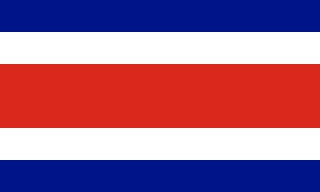
Costa Rica, officially the Republic of Costa Rica, is a country in the Central American region of North America. It borders Nicaragua to the north, the Caribbean Sea to the northeast, Panama to the southeast, and the Pacific Ocean to the southwest, as well as maritime border with Ecuador to the south of Cocos Island. It has a population of around five million in a land area of nearly 51,180 km2 (19,760 sq mi). An estimated 352,381 people live in the capital and largest city, San José, with around two million people in the surrounding metropolitan area.

The University for Peace (UPEACE) is an international university and intergovernmental organization established as a treaty organisation by the United Nations General Assembly in 1980. The university offers postgraduate, doctoral, and executive programmes related to the study of peace and conflict, environment and development, and international law.
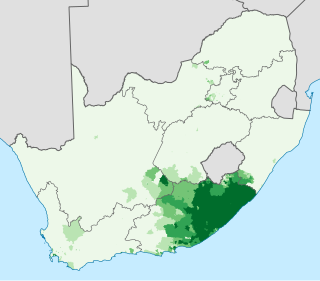
Xhosa, formerly spelled Xosa and also known by its local name isiXhosa, is a Nguni language, indigenous to Southern Africa and one of the official languages of South Africa and Zimbabwe. Xhosa is spoken as a first language by approximately 8 million people and as a second language in South Africa, particularly in Eastern Cape, Western Cape, Northern Cape and Gauteng, and also in parts of Zimbabwe and Lesotho. It has perhaps the heaviest functional load of click consonants in a Bantu language, with one count finding that 10% of basic vocabulary items contained a click.

José María Figueres Olsen is a Costa Rican businessman and politician, who served as President of Costa Rica from 1994 to 1998. He also ran for president in the 2022 presidential election but was defeated by Rodrigo Chaves.

Youngstown State University is a public university in Youngstown, Ohio, United States. It was founded in 1908 and is the easternmost member of the University System of Ohio.
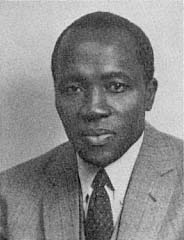
Archibald Campbell Mzolisa "A.C." Jordan was a novelist, literary historian and intellectual pioneer of African studies in South Africa.

Lamar University is a public university in Beaumont, Texas, United States. Lamar has been a member of the Texas State University System since 1995. It was the flagship institution of the former Lamar University System. As of the fall of 2024, the university enrollment was 17,850 students. Lamar University is accredited by the Southern Association of Colleges and Schools and named for Mirabeau B. Lamar, the second president of the Republic of Texas.
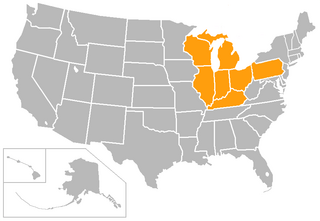
The Horizon League is a collegiate athletic conference in the National Collegiate Athletic Association (NCAA) Division I. Headquartered in Indianapolis, the league's eleven member schools are located in and near the Great Lakes region and in part of the Southern United States.
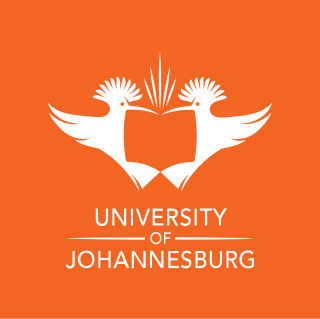
The University of Johannesburg, colloquially known as UJ, is a public university located in Johannesburg, South Africa. The University of Johannesburg was established on 1 January 2005 as the result of a merger between the Rand Afrikaans University (RAU), the Technikon Witwatersrand (TWR) and the Soweto and East Rand campuses of Vista University. Prior to the merger, the Daveyton and Soweto campuses of the former Vista University had been incorporated into RAU. As a result of the merger of Rand Afrikaans University (RAU), it is common for alumni to refer to the university as RAU.
Sir Robert Birley KCMG was an English educationalist who was head master of Charterhouse School, then Eton College, and an anti-apartheid campaigner.
Avoidance speech is a group of sociolinguistic phenomena in which a special restricted speech style must be used in the presence of or in reference to certain relatives, or in certain situations. Avoidance speech is found in many Australian Aboriginal languages and Austronesian languages as well as some North American languages such as Anishinaabe-mowin, Highland East Cushitic languages and Southern Bantu languages. Chinese naming taboo prohibits speaking and writing syllables or characters that appear in the names of esteemed people, such as emperors, parents, and ancestors.

Benedict Wallet Vilakazi was a South African novelist, linguist, a descendant of the Zulu royal family, and a radically innovative poet who created a combination of traditional and Romantic poetry in the Zulu language. Vilakazi was also a professor at the University of Witwatersrand, where he became the first Black South African to teach University classes to White South Africans. In 1946, Vilakazi also became the first Black South African to receive a PhD.

Charlotte Makgomo Maxeke was a South African religious leader, social and political activist. She was the first black woman to graduate with a university degree in South Africa with a B.Sc. from Wilberforce University, Ohio, in 1903, as well as the first African woman to graduate from an American university.

Terence Alphonso Todman was an American diplomat who served as the U.S. Ambassador to Chad, Guinea, Costa Rica, Spain, Denmark, and Argentina. In 1990, he was awarded the rank of Career Ambassador.
Mhlobo Wabantwana Jadezweni is a South African academic and author. He has degrees from the University of Fort Hare and Stellenbosch University. He has been attached to the Department of African Languages at Stellenbosch University since 1983, where he teaches Xhosa literature and language, and studies isiXhosa poetry. He has served on various Xhosa language boards since 1984 and is chairperson of the isiXhosa Lexicography Unit at Fort Hare.
Eduardo Augusto Doryan Garrón was Executive President of the Costa Rican Electricity Institute (ICE) for the period 2010–2011. Until April 2010 he was the Executive Presidente of the Caja Costarricense de Seguro Social. He assumed the role in May 2006, following the second election of president Oscar Arias. He has also previously served as Minister of Education (1994-1998) and Vice-Minister of Science and Technology (1986-1990), all under National Liberation Party governments. Doryan has also had a long and diverse career in academic, public service, consulting and with international organizations.

The Xhosa people, or Xhosa-speaking people are a Bantu ethnic group native to South Africa. They are the second largest ethnic group in South Africa and are native speakers of the isiXhosa language.
Milner Langa Kabane Fort Hare Alumni, GCOB was an educator, newspaper editor, human rights activist and a pioneer of the first "Bill of Rights" version in South Africa, which was unanimously adopted by many progressive organisations including the African National Congress in 1943.
Harold Scheub was an American Africanist, Evjue-Bascom Professor of Humanities Emeritus in the Department of African Languages and Literature at the University of Wisconsin–Madison. Scheub has recorded and compiled oral literature from across southern Africa.
Joan Huber is an American sociologist and professor emeritus of sociology at Ohio State University. Huber served as the 79th president of the American Sociological Association in 1989. Huber taught at the University of Notre Dame from 1967 to 1971, eventually moving to Illinois, where she taught at the University of Illinois at Urbana/Champaign. While instructing numerous sociology courses at the University of Illinois at Urbana/Champaign, Huber served as the director of Women's Studies Program for two years (1978–1980), and then became the head of the Department of Sociology in 1979 until 1983. In 1984, Huber left Illinois for an opportunity at the Ohio State University, where she became the dean of the College of Social and Behavioral Sciences, coordinating dean of the Colleges of the Arts and Sciences, and senior vice president for academic affairs and university provost. During her time, Huber was president of Sociologists for Women in Society from 1972 to 1974, the Midwest Sociological Society from 1979 to 1980, and the American Sociological Association from 1988 to 1989. Being highly recognized for her excellence, in 1985 Huber was given the Jessie Bernard Award by the American Sociological Association. Not only was Huber an instructor of sociology at multiple institutions or president of different organization, she also served different editorial review boards, research committees, and counseled and directed many institutions on their sociology departments.
References
- ↑ Read, Brock (9 July 2007). "Youngstown State U.'s Provost Drowns While on Vacation in Costa Rica". The Chronicle of Higher Education . Retrieved 2 December 2024.
- 1 2 Gwin, Harold. "Trip was gift but turned tragic Provost memorial planned at YSU". The Vindicator. Retrieved 2024-12-02.